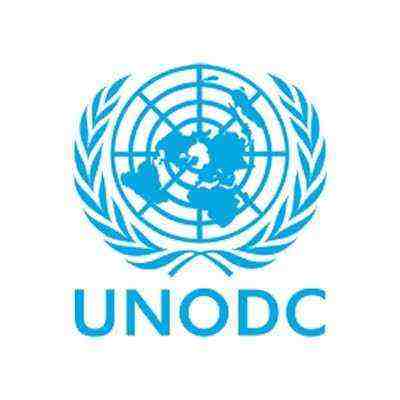UNODC contributes to global peace and security, human rights and development by making the world safer from drugs, crime, corruption and terrorism by working with Member States to promote justice and the rule of law and build resilient societies.
UNODC Country Office for Afghanistan is operating to identify and address aspects of the drugs and crime situation in Afghanistan, through advocacy in the policy arena; providing reliable information on opium poppy cultivation, production, prices, and drug users; and through implementation in the field, delivery of basic human needs through effective alternative livelihoods, drug demand and harm reduction support to people affected by drug dependence.
The 2015 Afghanistan National Drug Use Survey (ANDUS) indicated that 11% of the country population (2.9 to 3.5 million people) were tested positive for narcotic drugs. Sub-programme 3 of UNODC country Programme for Afghanistan aims at addressing drug use, drug use disorders and related HIV/AIDS and other co- morbidities as part of the humanitarian response in Afghanistan, with a special focus on vulnerable groups such as children, adolescents, female drug users and populations in closed settings.
The non-medical use of psychoactive drugs poses considerable health risks, leading to drug use disorders, increased morbidity, mortality, and societal costs. Effectively addressing these issues through prevention, treatment, and care services is an investment in individual health and the well-being of families, communities, and nations.
Project Context and Scope:
There are seven Drug Treatment Centres (DTCs) in Kandahar, Helmand and Badakhshan provinces, drug treatment and rehabilitation services are being provided with financial support from the core budget of government as well as support from the donors.
The current DTCs situated in Kandahar, Badakhshan and Helmand provinces operate within suboptimal conditions, utilizing low-standard facilities. The deficiencies identified include the absence of dedicated spaces for vocational skill training programs, inadequate 24-hour electricity supply, limited WASH /hygiene facilities, and restricted access to safe drinking water. Additionally, there is a notable lack of budget allocation for the essential renovation and maintenance of these DTCs.
This proposed project aims to address these challenges comprehensively. The initiative seeks to augment existing DTCs by creating specialized rooms for vocational skills training, renovating the infrastructure, and ensuring essential amenities such as 24-hour electricity, access to safe drinking water, and improved WASH /hygiene facilities. These enhancements are envisioned to empower DTCs to deliver evidence-based and human rights-oriented drug treatment and rehabilitation services.
By upgrading the physical infrastructure and expanding the facilities, the project aims to create a more conducive environment for both service providers and individuals seeking treatment. The provision of essential amenities and equipment will ensure that DTCs can deliver services efficiently and sustainably, ultimately improving the overall quality of drug treatment services in the targeted provinces.





